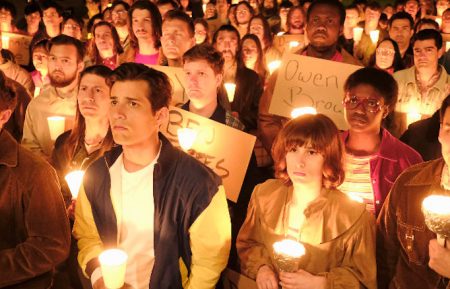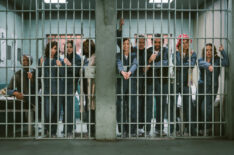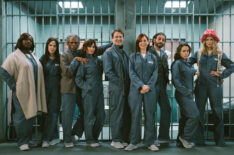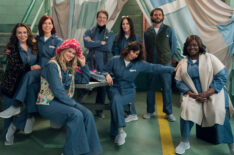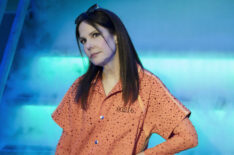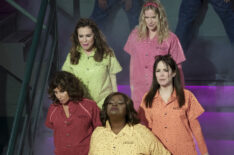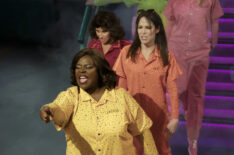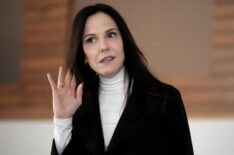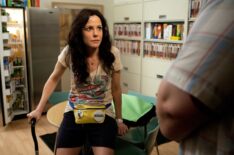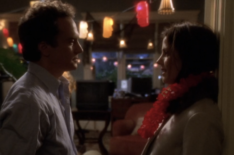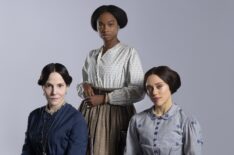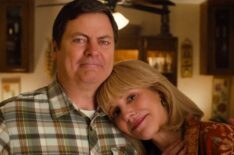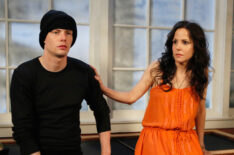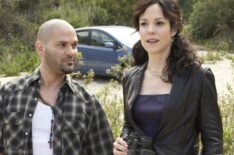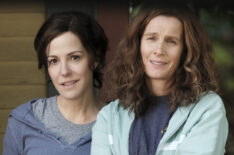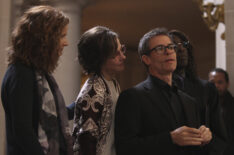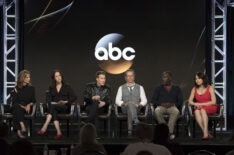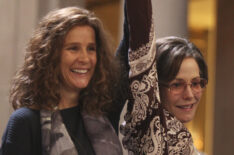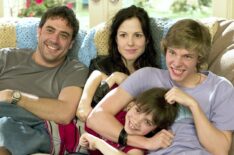Mary-Louise Parker
Credits

The Gray House
Actor
Show
2026
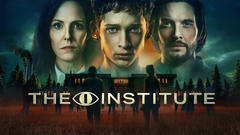
The InstituteStream
Actor
Ms. Sigsby
Series
2025

ElsbethStream
Guest Star
Freya
Series
2024

Omni LoopStream
Actor
Zoya Lowe
Movie
2024

Seneca
Actor
Agrippina
Movie
2023

Colin in Black & WhiteStream
Actor
Teresa Kaepernick
Miniseries
2021

The Same Storm
Actor
Roxy
Movie
2021

One Night Only: The Best of Broadway
Guest
Special
2020

The Drew Barrymore Show
Guest
Talk
2020

Today 3rd Hour
Guest
Show
2018

Red SparrowStream
Actor
Stephanie Boucher
Movie
2018

Mr. MercedesStream
Actor
Janey Patterson
Series
2017

Mr. Mercedes
Actor
Janey Patterson
Show
2017

The Best Place to Be
Host
Show
2017
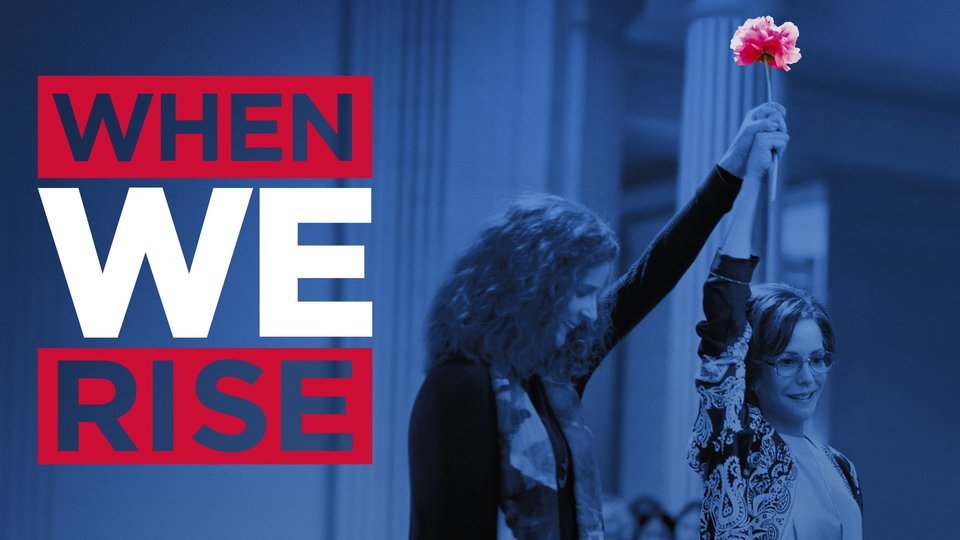
When We RiseStream
Actor
Roma Guy
Miniseries
2017

Golden Exits
Actor
Gwendolyn
Movie
2017

Chronically Metropolitan
Actor
Annabel
Movie
2016

The Late Show With Stephen ColbertStream
Guest
Talk
2015

Late Night With Seth MeyersStream
Guest
Talk
2014
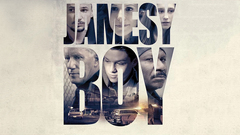
Jamesy BoyStream
Actor
Tracy
Movie
2014

Behaving Badly
Actor
Lucy Stevens/Saint Lola
Movie
2014

The BlacklistStream
Guest Star
Naomi Hyland
Series
2013

Christmas in ConwayStream
Actor
Suzy Mayor
Movie
2013

R.I.P.D.Stream
Actor
Proctor
Movie
2013

Red 2Stream
Actor
Sarah
Movie
2013

Live! With Kelly and Michael
Guest
Talk
2012

CBS This Morning: Saturday
Guest
Show
2012

CBS This Morning
Guest
Show
2012

LIVE with Kelly
Guest
Talk
2011

ConanStream
Guest
Talk
2010

RedStream
Actor
Sarah
Movie
2010

Howl
Actor
Gail Potter
Movie
2010

ES.TV
Guest
Show
2009

Elvis Costello med gäster
Host
Show
2009

Solitary Man
Actor
Jordan
Movie
2009

The Bonnie Hunt Show
Guest
Talk
2008

Hollywood & Dine
Guest Star
Show
2008

The Spiderwick ChroniclesStream
Actor
Helen Grace
Movie
2008

Chelsea Lately
Guest
Talk
2007

The Better Show
Guest
Show
2007
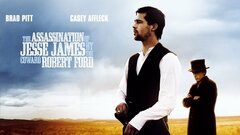
The Assassination of Jesse James by the Coward Robert FordStream
Actor
Zee James
Movie
2007

The Robber Bride
Actor
Zenia Arden
Movie
2007

Rachael Ray Show
Guest
Talk
2006

WeedsStream
Actor
Nancy Botwin
Series
2005

The Late Late Show With Craig Ferguson
Guest
Talk
2005

Vinegar Hill
Actor
Ellen Grier
Movie
2005

Romance & Cigarettes
Actor
Constance
Movie
2005

Tavis Smiley
Guest
Talk
2004

Miracle RunStream
Actor
Corrine Morgan-Thomas
Movie
2004

The Best Thief in the World
Actor
Sue Zaidman
Movie
2004

Saved!Stream
Actor
Lillian
Movie
2004

Angels In AmericaStream
Actor
Harper Pitt
Miniseries
2003

Jimmy Kimmel Live!Stream
Guest
Talk
2003

Angels in America
Actor
Harper Pitt
Movie
2003

Master Spy: The Robert Hanssen Story
Actor
Show
2002

Treason: The Robert Hanssen Story
Actor
Movie
2002

Master Spy: The Robert Hanssen Story
Actor
Movie
2002

Red Dragon
Actor
Molly Graham
Movie
2002

Pipe Dream
Actor
Toni Edelman
Movie
2002

Live With Regis and Kelly
Guest
Show
2001

Cupid & Cate
Actor
Cate DeAngelo
Movie
2000
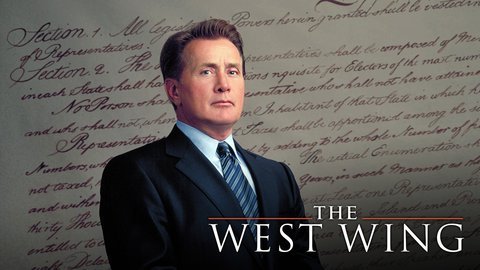
The West WingStream
Actor
Amy Gardner
Series
1999

The West WingStream
Guest Star
Amy Gardner
Series
1999

Independent LensStream
Host
Series
1999

The Five Senses
Actor
Rona
Movie
1999
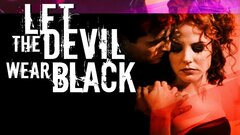
Let the Devil Wear BlackStream
Actor
Julia Hirsch
Movie
1999

The Simple Life of Noah Dearborn
Actor
Dr. Valerie Crane
Movie
1999

Goodbye Lover
Actor
Peggy Blane
Movie
1998

Saint Maybe
Actor
Lucy Dean Bedloe
Movie
1998

Legalese
Actor
Rica Martin
Movie
1998
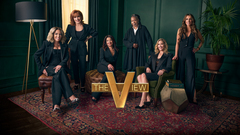
The View
Guest
Talk
1997

The Maker
Actor
Officer Emily Peck
Movie
1997

Murder in Mind
Actor
Caroline Walker
Movie
1997
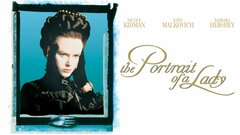
The Portrait of a Lady
Actor
Henrietta Stackpole
Movie
1996

Boys on the Side
Actor
Robin
Movie
1995

Sugartime
Actor
Phyllis McGuire
Movie
1995

Reckless
Actor
Pooty
Movie
1995

Entertainers: With Byron Allen
Guest
Show
1994
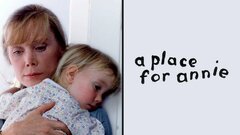
A Place for AnnieStream
Actor
Linda
Movie
1994
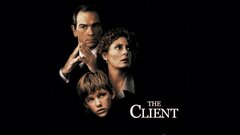
The ClientStream
Actor
Dianne Sway
Movie
1994
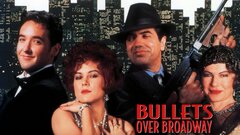
Bullets over BroadwayStream
Actor
Ellen
Movie
1994

Late Show With David Letterman
Guest
Talk
1993
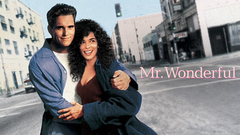
Mr. WonderfulStream
Actor
Rita
Movie
1993

Naked in New York
Actor
Joanne White
Movie
1993

The Tonight Show With Jay Leno
Guest
Talk
1992
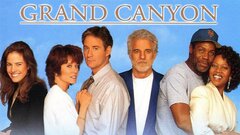
Grand Canyon
Actor
Dee
Movie
1991
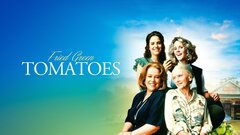
Fried Green TomatoesStream
Actor
Ruth Jamison
Movie
1991

Longtime Companion
Actor
Lisa
Movie
1990

Signs of Life
Actor
Charlotte
Movie
1989

American ExperienceStream
Voice
Series
1988

Too Young the Hero
Actor
Pearl Spencer
Movie
1988

Good Morning AmericaStream
Guest
News
1975

TodayStream
Guest
News
1952
News aboutMary-Louise Parker
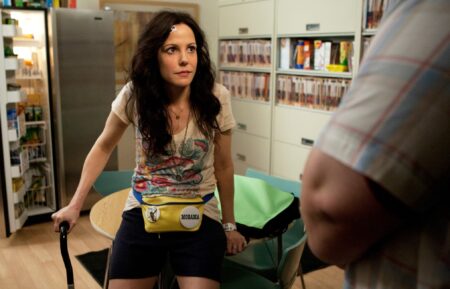
As ‘Weeds’ Turns 20, Is the Sequel Series Still Happening?
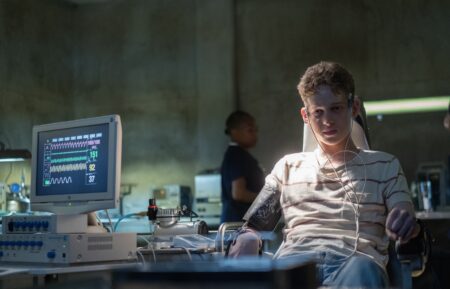
Review
Roush Review: Stephen King’s Creepy ‘Institute’ Is No Place for Kids
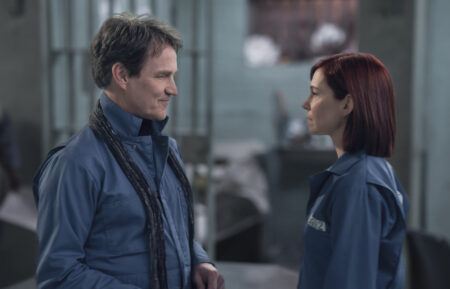
Exclusive
‘Elsbeth’ Boss Teases Danger for Elsbeth With Returning Guest Stars in Prison (VIDEO)
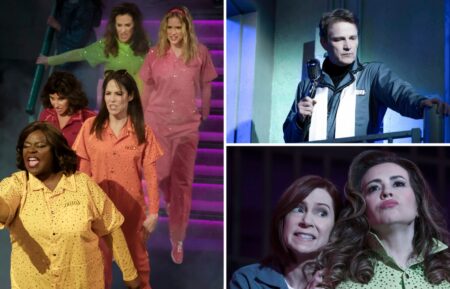
‘Elsbeth’ Finale: See Guest Stars Return for ‘Cell Block Tango’ Musical Number (PHOTOS)
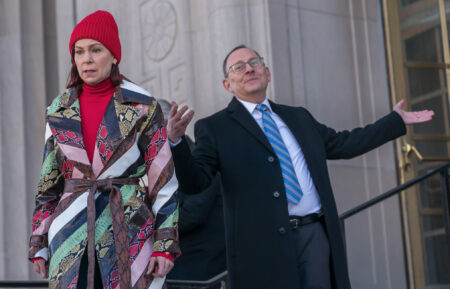
Is ‘Elsbeth’ New This Week? What to Expect in Final Episodes of Season 2 (PHOTOS)
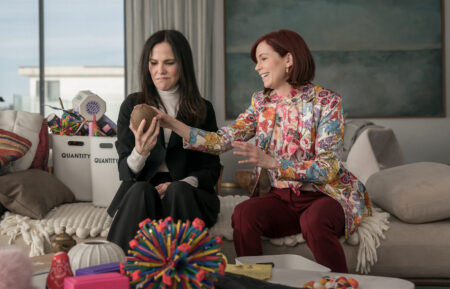
Spoiler Alert
‘Elsbeth’ Unpacks What’s in Those Tote Bags — And Why She Carries So Much
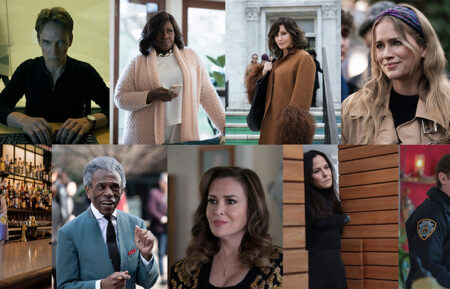
‘Elsbeth’ Season 2 Finale: Stephen Moyer & 8 More Guest Stars to Return
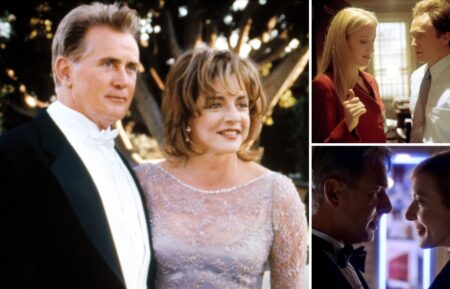
10 ‘West Wing’ Couples, Ranked
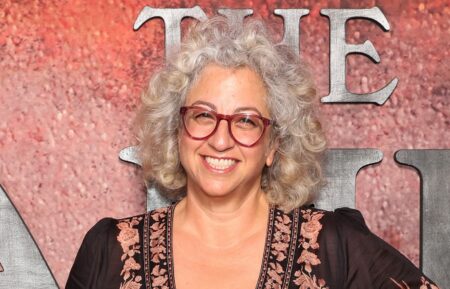
‘Weeds’ Creator Jenji Kohan Slams Sequel Series & Brands It a ‘Money Grab’
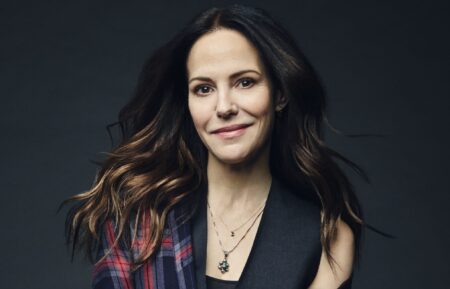
Q&A
Mary-Louise Parker Talks ‘The Gray House’ & Reflects on Her Most Impactful Roles
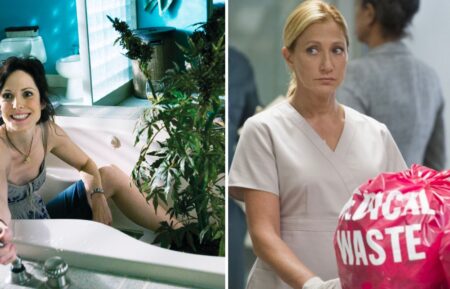
‘Nurse Jackie’ & ‘Weeds’ Sequels in the Works at Showtime
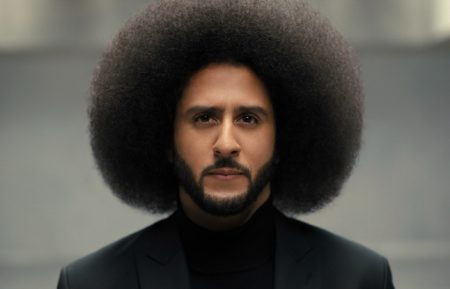
‘Colin in Black & White’ Trailer Teases Kaepernick’s Childhood Journey (VIDEO)
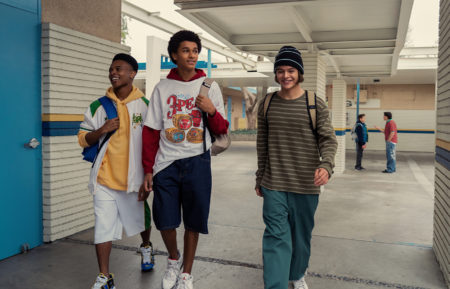
Fall Preview
Netflix’s ‘Colin in Black & White’ Explores Kaepernick’s ‘Resiliency’
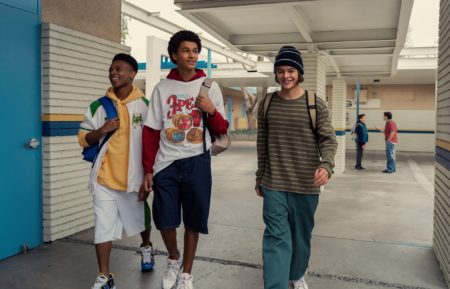
Netflix’s ‘Colin in Black & White’ Sets Premiere, Unveils First Look at Kaepernick Drama
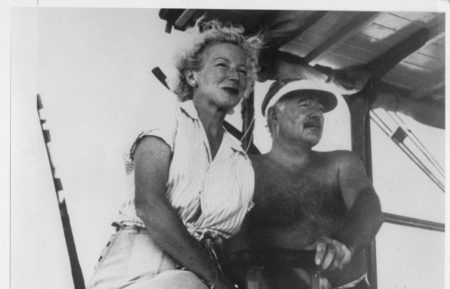
Review
Roush Review: Telling Hemingway’s Larger-Than-Life Story

Netflix’s ‘Colin in Black & White’ Casts Mary-Louise Parker and Nick Offerman
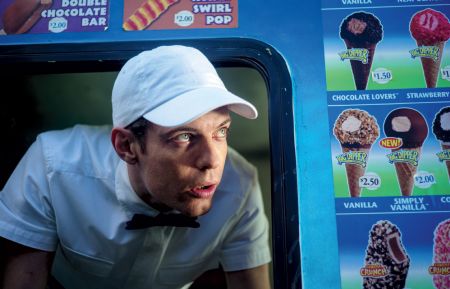
Review
Roush Review: ‘Mr. Mercedes’ Gives Viewers a Real Jolt
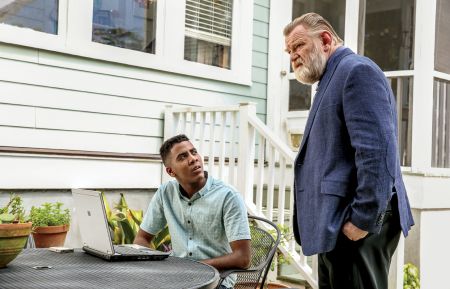
Stephen King’s ‘Mr. Mercedes’ Finds a Captive Audience (Network, That Is)
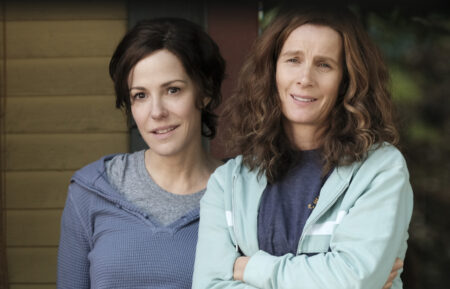
Preview
‘When We Rise’: The Cast on the Challenges of Playing Real-Life LGBT Activists (VIDEO)
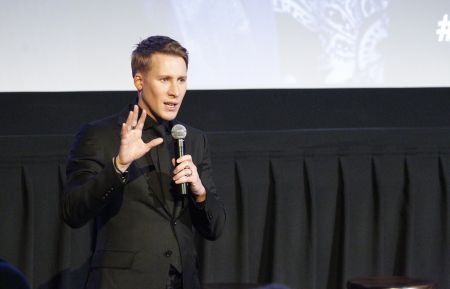
Preview
‘When We Rise’: Dustin Lance Black on the Story That Doesn’t Have an Ending (VIDEO)
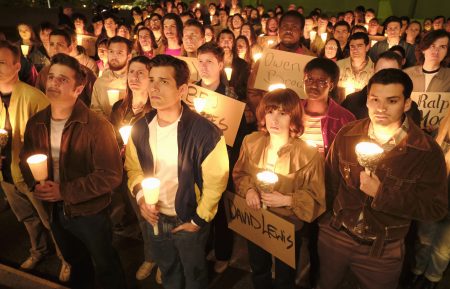
Review
Roush Review: Moving ‘When We Rise’ Shines a Dramatic Light on Activism
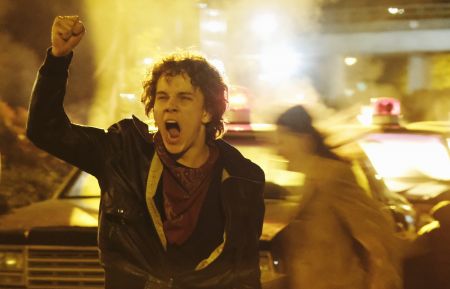
The Story Behind ‘When We Rise’: Dustin Lance Black and ABC’s Gay-Rights Movement Miniseries Reclaims History
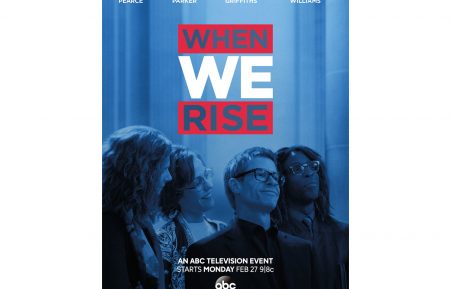
Exclusive
‘When We Rise’ Key Art Released (PHOTOS)
